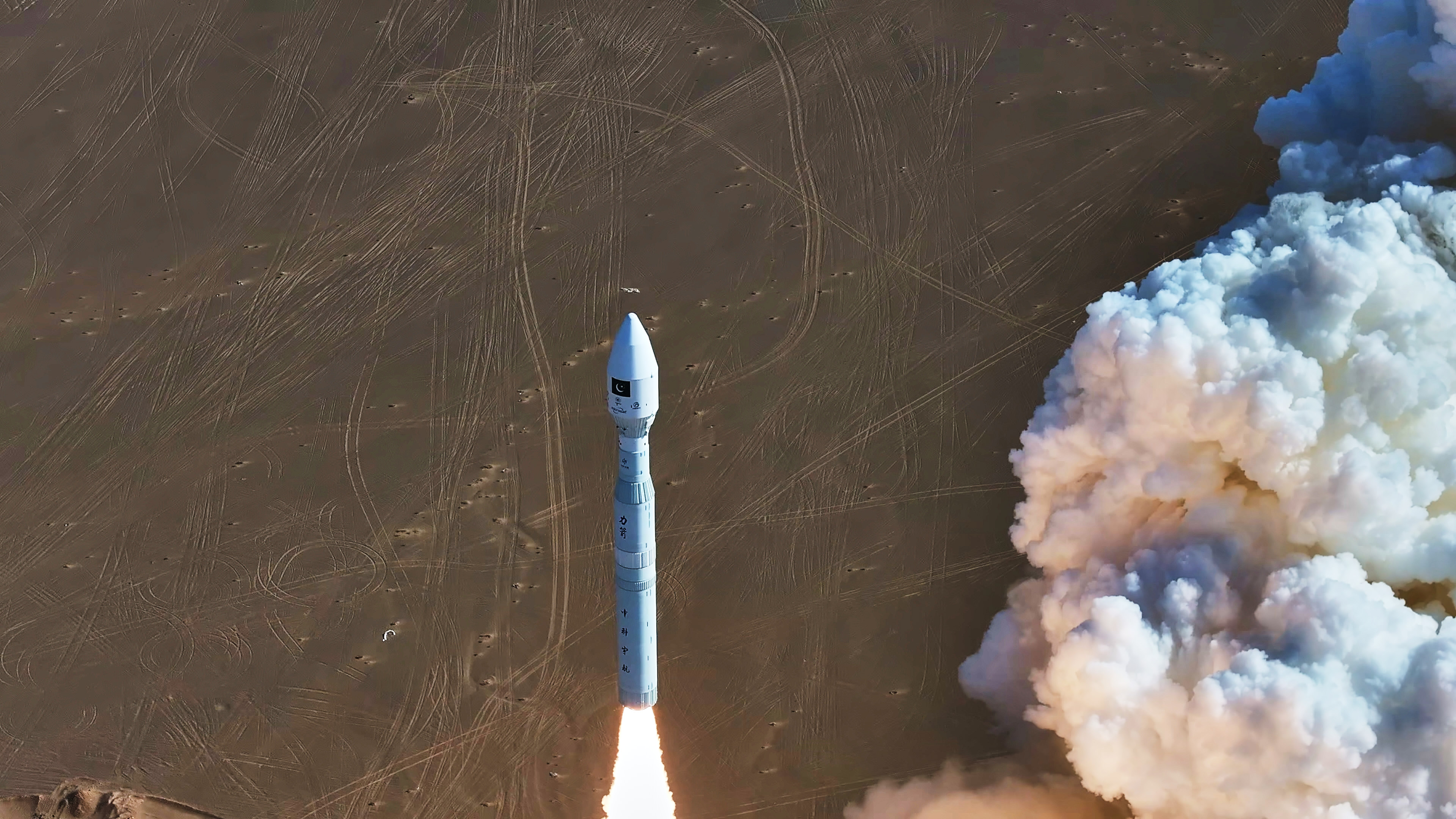China's commercial space industry continues to expand its global footprint as launch costs fall and overseas partnerships deepen.

Photo from CAS Space
by MA Yueran
China's CAS Space carried out its third international launch using the Kinetica 1 (also known as Lijian-1) rocket on October 19, advancing its effort to become a global player in commercial space.
The Y8 rocket lifted off from the Dongfeng Commercial Aerospace Innovation Test Zone, placing three satellites—Pakistan's Remote Sensing Satellite-02 (PRSS-2) and two CAS satellites—into orbit under a "one rocket, three satellites" mission. It was the ninth flight of Kinetica 1, which has now sent 73 satellites into orbit with a total payload of more than 9 tons.

The Guangzhou-based firm, incubated by the Chinese Academy of Sciences' Institute of Mechanics, has quickly positioned itself in the competitive commercial launch market by emphasizing reliability and cost efficiency. Chief designer SHI Xiaoning told Jiemian News that the rocket's performance has stabilized, and its launch price has dropped below US$10,000 (about 71,300 yuan) per kilogram—a competitive rate given that domestic market prices typically range from 50,000 yuan to over 100,000 yuan.
In August, CAS Space's Kinetica 1 Y10 launched a satellite for a Mexican company, marking a breakthrough in China's entry into the North American commercial space market. Its earlier missions included a 2024 launch for Oman—the first by a Chinese private rocket company for an international customer.
The newly launched CAS-03 and CAS-04 satellites will join the AIRSAT constellation developed by CAS Space, supporting sectors such as agriculture, disaster management and urban planning through X-band SAR remote-sensing data.
Founded in 2018, CAS Space is Guangdong's first commercial space unicorn. The company focuses on developing medium and large launch vehicles, customized launch services, suborbital scientific experiments and space tourism. The firm filed for IPO guidance with the China Securities Regulatory Commission in August, with Guotai Haitong Securities as its sponsor, as it prepares to list on Shanghai's STAR Market.
The company's latest success highlights the growing international drive of China's private space sector. Over the past five years, China's commercial space industry has entered a rapid growth phase, supported by state policies and private capital. More than 200 commercial aerospace firms now operate nationwide, spanning launch services, satellite manufacturing and data applications, as they compete for international contracts.
In 2024, Beijing-based GalaxySpace partnered with Thailand's True Corporation to conduct the country's first low-orbit broadband satellite internet trial. Earlier this year, SpaceSail signed a strategic cooperation framework with Thailand's National Telecom, following memoranda of understanding with Brazil's TELEBRAS and Malaysia's MEASAT.
In August, Piesat Information Technology (688066.SH), also based in Beijing, announced a 990 million yuan overseas contract—the largest in its history—to provide in-orbit satellite services for an international client. Meanwhile, firms such as LandSpace and Galactic Energy have signed cooperation agreements with partners in Germany, Malaysia and Singapore, showcasing China's expanding presence in the global commercial space market.